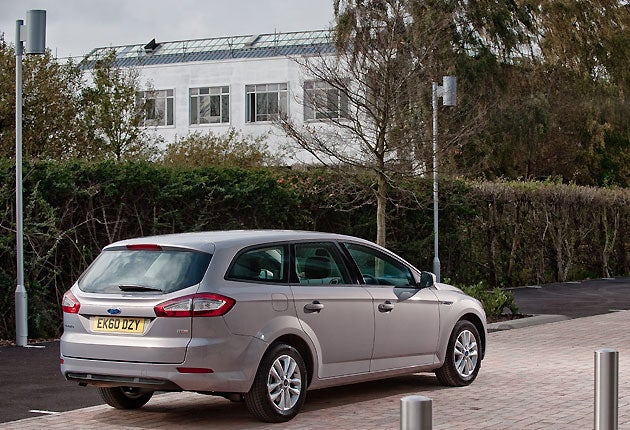Ford Mondeo 1.6 EcoBoost
Good new for company drivers as gutsy little engine threatens to knock diesels off default choice

Your support helps us to tell the story
From reproductive rights to climate change to Big Tech, The Independent is on the ground when the story is developing. Whether it's investigating the financials of Elon Musk's pro-Trump PAC or producing our latest documentary, 'The A Word', which shines a light on the American women fighting for reproductive rights, we know how important it is to parse out the facts from the messaging.
At such a critical moment in US history, we need reporters on the ground. Your donation allows us to keep sending journalists to speak to both sides of the story.
The Independent is trusted by Americans across the entire political spectrum. And unlike many other quality news outlets, we choose not to lock Americans out of our reporting and analysis with paywalls. We believe quality journalism should be available to everyone, paid for by those who can afford it.
Your support makes all the difference. Price: from £18,945
Top Speed: 134 mph
Acceleration 0-100 km/h (62 mph): 9.3 seconds
Fuel consumption: 41.5 mpg
C02 emissions: 158 g/km
Ford has given the Mondeo a comprehensive mid-life update for the 2011 model year. Two new top-of the range engines – one diesel and one petrol – have grabbed all the attention with their 150mph-plus performance and we have already reported on these in detail HERE and HERE.
But company car drivers whose employers' budgets don't stretch to these quicker models needn't feel too hard done by because lesser Mondeos have been given better engines as well. The most interesting of these is a new turbocharged 1.6-litre petrol engine, branded EcoBoost. This has already received rave reviews in the new C-Max and Grand C-Max people carriers but suits the bigger Mondeo just as well.
So what's remarkable about the 1.6-litre EcoBoost? The first notable achievement is its very high power output for a mainstream car engine in relation to its capacity – 100 horsepower per litre. Not so long ago, an engine fitted to a car like the Mondeo would have achieved a horsepower-per-litre figure, or specific power output, to use the correct technical term, of about 50. Even today, 100 horsepower per litre is a high figure usually associated with much sportier models.
The second thing to note is that the 1.6-litre EcoBoost doesn't feel like a small engine that has been pushed to the limit in order to extract a lot of power; it just feels like a much bigger engine – and a good one at that. Anyone who hasn't experienced any of the powerful downsized petrol engines the big car manufacturers have been developing in order to reduce fuel consumption and emissions would probably guess that it is half a litre or even a full litre larger than it actually is. Low-end torque and smoothness are excellent. Fuel consumption, at 41.5 mpg on the official combined cycle test, and CO2 emissions, aren't quite as good as the latest diesels, but the gap is narrowing; it may now be narrow enough for some drivers and companies for whom diesels have been the default choice for at least the last decade because of their economy to take a second look at petrol engines.
On the subject of diesels, it's worth mentioning that as well as the new top-of-the-range 2.2-litre 200 horsepower option, there are three 2.0s offering 115, 140 or 163 horsepower; I tried the last of these briefly and for UK roads it should easily provide enough (very refined) performance, even if it doesn't have quite the sparkle of the 2.2.
Most models in Ford's range are available in fuel-saving Econetic-badged form. The latest diesels apparently already incorporate many of the features of the Econetic version of the pre-update Mondeo, such as low-viscosity transmission oil, but Ford is hinting that a new Mondeo Econetic with a new set of fuel and CO2-saving tweaks is on the cards.
Prices for the Mondeo 1.6-litre EcoBoost start at an attractive£18,945, and at that level there should be plenty of takers. Ford has been overhauling its pricing model this year. Previously, especially for fleet-oriented models, it had a policy of publishing high list prices but conceding large discounts, especially for bigger customers; now the prices have been realigned so that they are closer to the prices actually paid. This may not appear to be an important change but lower list prices make the car more attractive to business users as the UK system of Benefit in Kind taxation is based on official list prices rather than the amount paid for a car.
Join our commenting forum
Join thought-provoking conversations, follow other Independent readers and see their replies
Comments